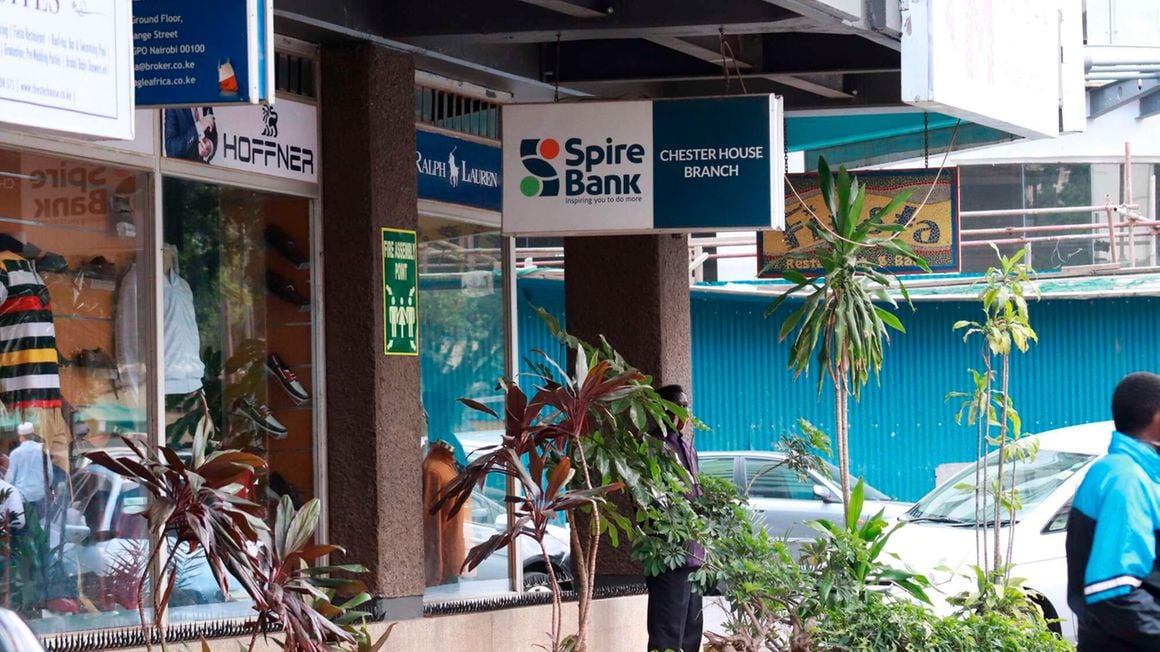Banks
Equity will Get up to Sh510m for Acquisition of Spire Bank

In exchange for taking over the struggling Spire Bank, Mwalimu Sacco will pay Equity Group up to Sh510 million, which will result in the lender’s entire workforce being laid off. The arrangement is backed by teachers.
The transaction is modelled after an asset purchase transaction and is supported by the Central Bank of Kenya (CBK). Instead of investing money in the transaction, Equity will assume Spire Bank’s liabilities and assets.
After purchasing a majority interest in Spire Bank from the late tycoon Naushad Merali in 2014, teachers have lost billions of shillings since equity will be paid for the difference between the assets and liabilities, rendering Spire Bank worthless.
The Business Daily was informed by Kenneth Odhiambo, CEO of Mwalimu Sacco that Sh510.7 million has been held in an escrow account and will be used to pay Equity.
In line with the CBK’s favoured strategy of letting big banks purchase smaller, weaker ones rather than letting them collapse, he predicts that the dividend to Equity could be lower at the time of closing the acquisition.
The banking industry in Kenya, where 38 banks compete, has experienced a number of mergers and acquisitions since 2016, when three mid-sized and small institutions failed as well as a cap on commercial lending rates.
In 2019, the rate cap was lifted.
According to the insolvency rule, a rapid acquisition was sought before bankruptcy and collapse for Spire Bank.
“On an annual basis, the bank makes losses of approximately Sh1.1 billion. Its entire capital would be wiped out within the next two years hence a more painful loss should the liquidation process stall,” said Mr Odhiambo.
“The key prudence consideration is stopping this bleeding, which affects the Sacco bottom line and denies its members the rightful return on their savings, once and for all.”
Teachers have called for the removal of the lender and the withdrawal of their letter of support for the credit union as a result of Mwalimu Sacco’s billions of shillings in losses at Spire Bank.
Due to its financial difficulties, Spire Bank has been unable to access capital from peer banks.
The bank has been pleading with its biggest shareholders, Mwalimu Sacco and the CBK, for more money so that it may generate income to pay for expenses and make up losses.
Reverse Repo (repurchase agreements) from the CBK have been used to provide short-term liquidity of up to Sh1.3 billion, however this is not enough to save the lender.
A parliamentary investigation found that after Mwalimu Sacco invested billions in the lender, the Sacco Societies Regulatory Authority (Sasra) forbade them from adding more funds to the bank.
After Spire Bank suffered losses of around Sh10 billion, including a Sh3.4 billion conversion of teachers’ savings into equity, Mwalimu Sacco has been providing financial support to the lender.
Over seven possible bidders expressed interest in purchasing Spire Bank, including a local bank that was attracted by the lender’s reputation and teachers’ membership, but the regulator rejected the most of them due to conflict of interest and credibility difficulties.
Despite doubts about its future, Spire Bank has worked to turn things around by reducing expenses, recovering loans, and turning shareholder deposits into equity.
Despite limited lending due to inadequate capital and a delayed resolution through a sale or finding a strategic partner, the bank reduced its half-year net loss by 21% to Sh403 million.
Through severe cost-cutting efforts that decreased interest and operating expenses, it reduced losses from Sh512.8 million in June of last year.
When deposits totalling Sh3.4 billion were converted to equity, interest costs decreased from Sh221 million to Sh85 million, while operating costs fell by 7.0 percent to Sh470 million.
Low capital ratios have prevented the teachers’ bank from making loans, causing its loan book to decline from Sh2.3 billion to Sh1.7 billion.
The bank’s core capital, which was negative Sh4.1 billion in June of last year and is now negative Sh1.7 billion as a result of the deposit to equity conversion, has improved despite having capital ratios below the necessary CBK criteria.
Following KCB’s recent acquisition of the National Bank of Kenya, Equity is the most recent tier-one bank to purchase a struggling institution in pursuit of new development prospects (NBK). Jamii Bora Bank, a struggling micro lender, was also acquired by Co-operative Bank of Kenya.
With Spire Bank’s non-performing loans reaching Sh2.63 billion, it is clear that accelerating collections and recoveries would be a priority for Equity in the near future.
Equity has negotiated a deal in which Mwalimu Sacco, the only stakeholder of Spire Bank, will cover all of the redundancy costs for the more than 100 staff who will lose their jobs as a result of the deal.
CBK governor Patrick Njoroge said Friday through a Kenya Gazette notice that the “Spire Bank’s acquisition takes effect today.”











